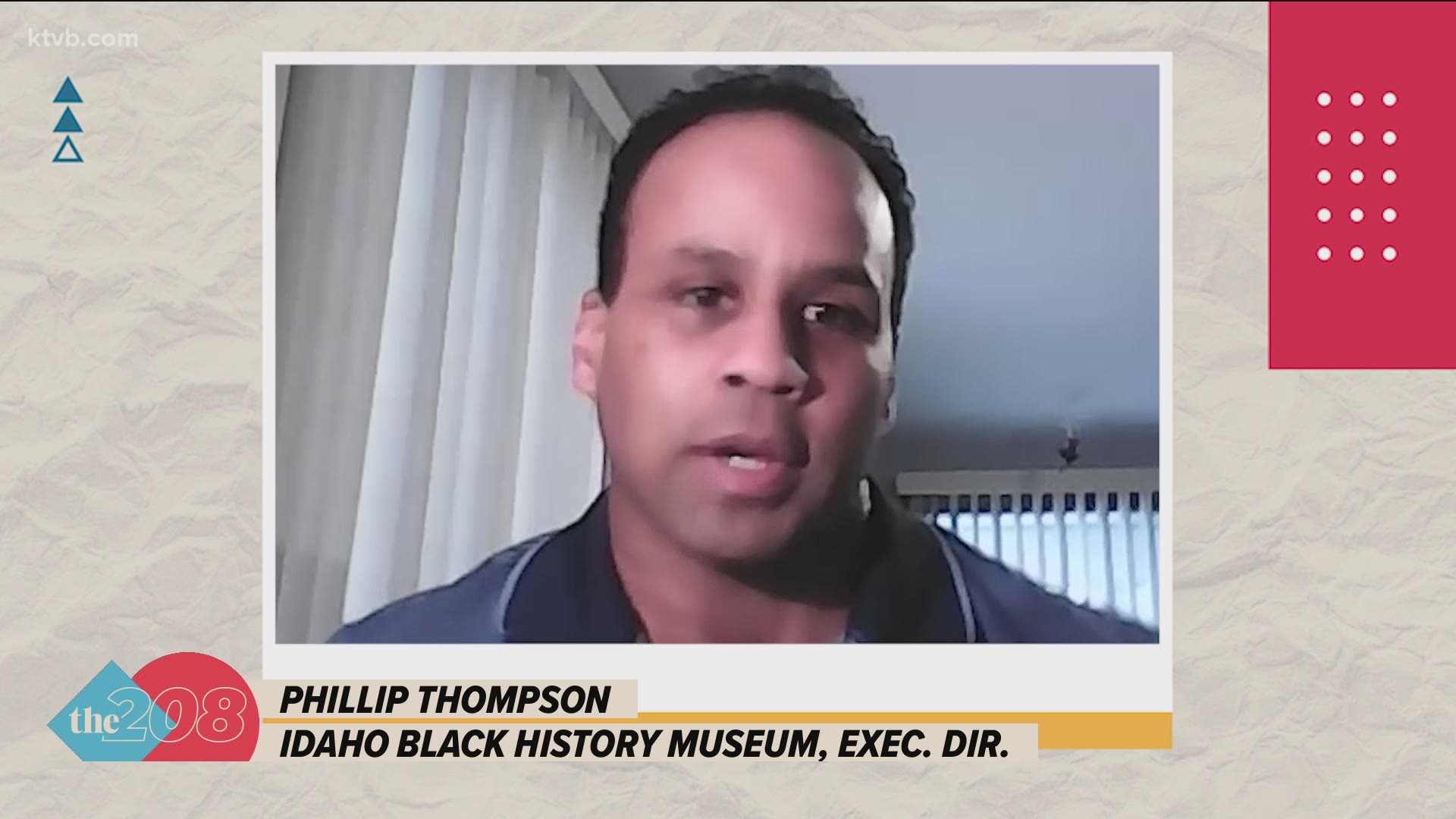BOISE, Idaho — Idaho was the 47th state in the United States to recognize Martin Luther King, Jr. Day as a holiday. President Ronald Reagan made it a holiday in 1983, but Idaho did not officially recognize the holiday until 1990.
At that time, the day was recognized under the name Idaho Human Rights Day.
Some could see this as a representation of how Black Americans have historically been treated in Idaho, but Philip Thompson, executive director of Idaho's Black History Museum, does not see it that way.
Thompson is a sixth-generation Idahoan. His family moved to Idaho as homesteaders, something that was not allowed by the Constitution in the neighboring state of Oregon.
Additionally, Idaho never had segregated schools and passed civil rights legislation three years before the country did.
2021 marks the 100th anniversary of the St. Paul Baptist Church, the building that houses the Idaho Black History Museum.
It was built in 1921 which, according to Thompson, was "a watershed year in America" in terms of race. The Tulsa and Oklahoma race riots were occurring as well as 32 other riots across the country.
During that time, Black Idahoans felt it safe to establish and build St. Paul Baptist Church.
"You've got to kind of take this half step back and compare the two: what was going on locally as far as black people in comparison to the norm nationally," Thompson said. "Mass lynchings were going about everywhere else, but Idaho is one of seven states, according to NAACP, that had lynchings but never lynched a black person."
Black Americans were able to come to Idaho and thrive, he added, because of homesteading, an opportunity that was afforded to them in Idaho but not many other places across the country.
Idaho's treatment of Native Americans and Chinese-Americans was oppressive, according to Thompson, but lieu of this, it would have been very easy for white Idahoans to oppress Black Idahoans
Inside the Idaho Black History Museum lives a more recent history of Idaho's treatment of Black Americans, including a robe of a Ku Klux Klan member from a family in Boise. Thompson's mother, Idaho Sen. Cherie Buckner-Webb (D-Boise), had a cross burned in her front yard when she was a little girl.
"I'm not advocating to ignore [this] at all, I'm simply saying i exist in the reality that these things are to be expected," Thompson said. "Simply being there less is just a pleasantry."
In the summer of 2020, neo-Nazis showed up at the Black Lives Matter protests in Downtown Boise, something Thompson said he would not expect otherwise.
"If they are bold enough to attack the Capitol, we should not be shocked they show up at a rally in Boise, Idaho 'cause they will show up at a rally anywhere and everywhere," Thompson said. "But again, I operate under this premise that humans do terrible things. Humans will look for reasons to treat somebody else horribly or exploit them. it's the violent acts of attack that i'm more concerned with."
According to Thompson, a 2018 study by the Southern Poverty Law Center said Idaho was the most hateful state in the country, per capita, based on the number of hate groups within the state.
Since the release of that study, however, he said Idaho has actually been one of the few states that has lowered the number of hate groups.
Join 'The 208' conversation:
- Text us at (208) 321-5614
- E-mail us at the208@ktvb.com
- Join our The 208 Facebook group: https://www.facebook.com/groups/the208KTVB/
- Follow us on Twitter: @the208KTVB or tweet #the208 and #SoIdaho
- Follow us on Instagram: @the208KTVB
- Bookmark our landing page: /the-208
- And we also turn each episode into a podcast or Podbeam
- Still reading this list? We're on YouTube, too:

